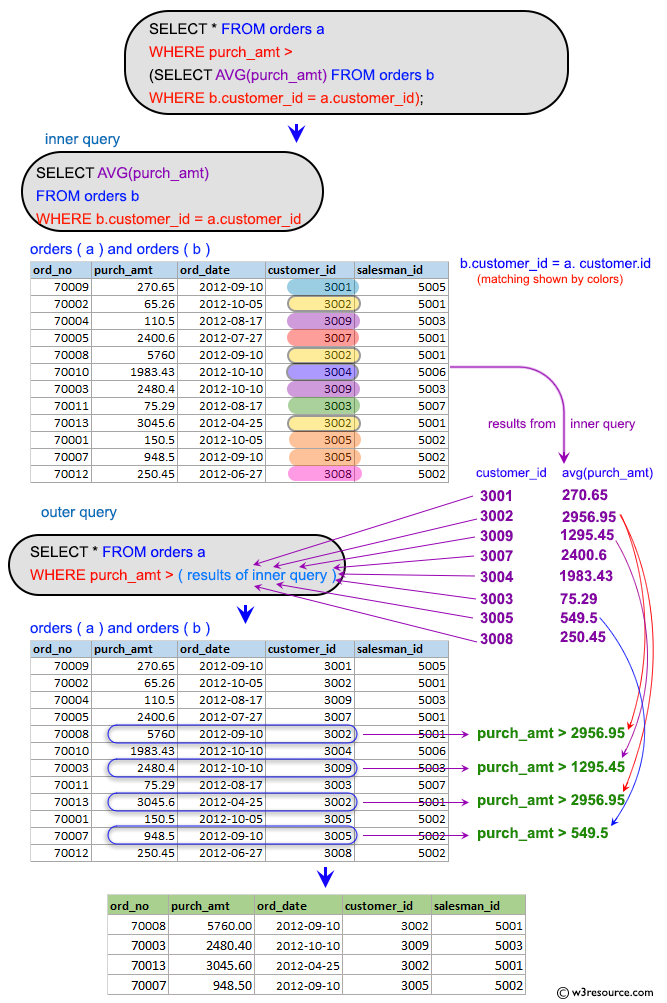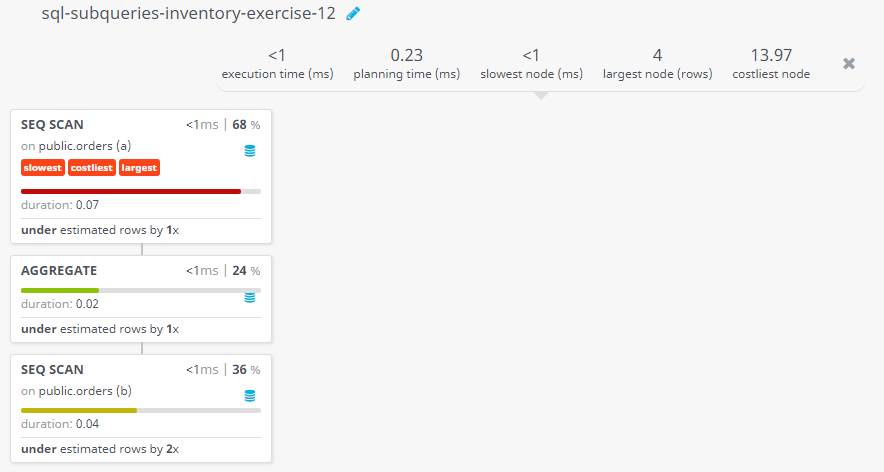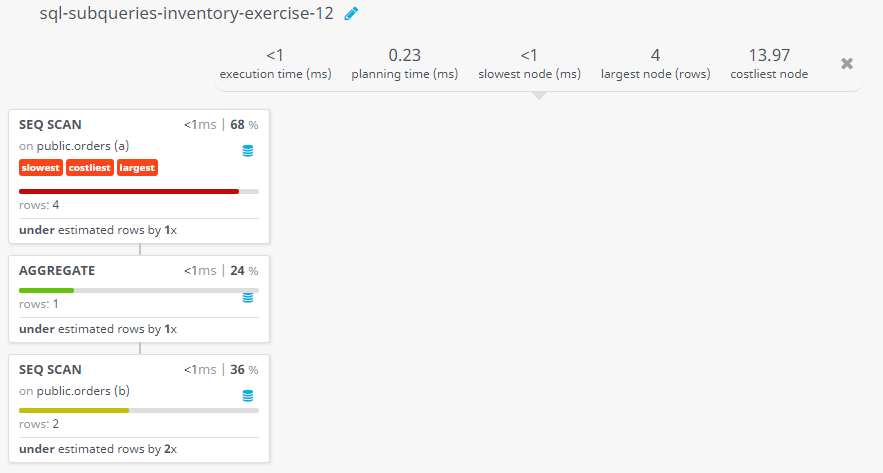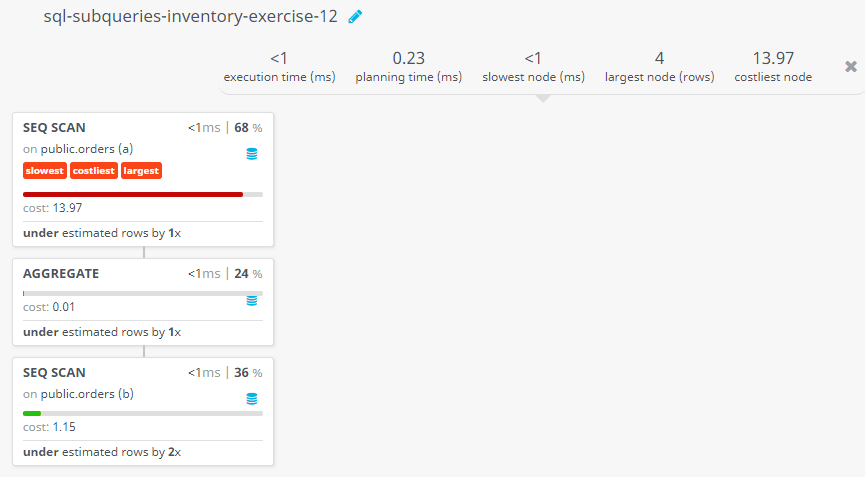SQL Subquery Exercises: Find all orders with order amounts which is above the average amount of the related customer
SQL SUBQUERY: Exercise-12 with Solution
12. From the following tables write a SQL query to find those orders, which are higher than the average amount of the orders. Return ord_no, purch_amt, ord_date, customer_id and salesman_id.
Sample table: Orders
Sample table: Customer
Sample Solution:
SELECT *
FROM orders a
WHERE purch_amt >
(SELECT AVG(purch_amt) FROM orders b
WHERE b.customer_id = a.customer_id);
Output of the Query:
ord_no purch_amt ord_date customer_id salesman_id 70008 5760.00 2012-09-10 3002 5001 70003 2480.40 2012-10-10 3009 5003 70013 3045.60 2012-04-25 3002 5001 70007 948.50 2012-09-10 3005 5002
Explanation:

Practice Online

Query Visualization:
Duration:

Rows:

Cost:

Contribute your code and comments through Disqus.
Previous: From the following tables, write a SQL query to find the salespeople who had more than one customer. Return salesman_id and name.
Next: From the following tables, write a SQL query to find those orders, which are equal or higher than average amount of the orders. Return ord_no, purch_amt, ord_date, customer_id and salesman_id.
What is the difficulty level of this exercise?
Test your Programming skills with w3resource's quiz.
SQL: Tips of the Day
SQL Server SELECT into existing table.
INSERT INTO dbo.TABLETWO SELECT col1, col2 FROM dbo.TABLEONE WHERE col3 LIKE @search_key
This assumes there's only two columns in dbo.TABLETWO - you need to specify the columns otherwise:
INSERT INTO dbo.TABLETWO (col1, col2) SELECT col1, col2 FROM dbo.TABLEONE WHERE col3 LIKE @search_key
Database: SQL Server
Ref: https://bit.ly/3y6tpA3
- New Content published on w3resource:
- HTML-CSS Practical: Exercises, Practice, Solution
- Java Regular Expression: Exercises, Practice, Solution
- Scala Programming Exercises, Practice, Solution
- Python Itertools exercises
- Python Numpy exercises
- Python GeoPy Package exercises
- Python Pandas exercises
- Python nltk exercises
- Python BeautifulSoup exercises
- Form Template
- Composer - PHP Package Manager
- PHPUnit - PHP Testing
- Laravel - PHP Framework
- Angular - JavaScript Framework
- Vue - JavaScript Framework
- Jest - JavaScript Testing Framework
